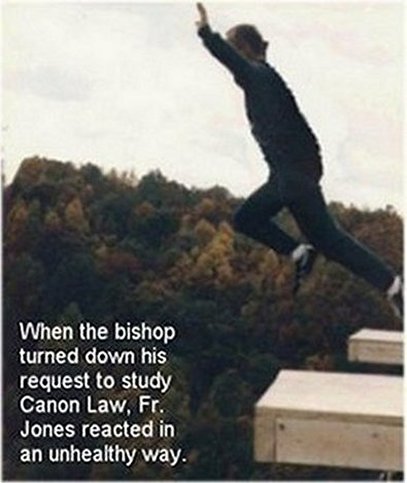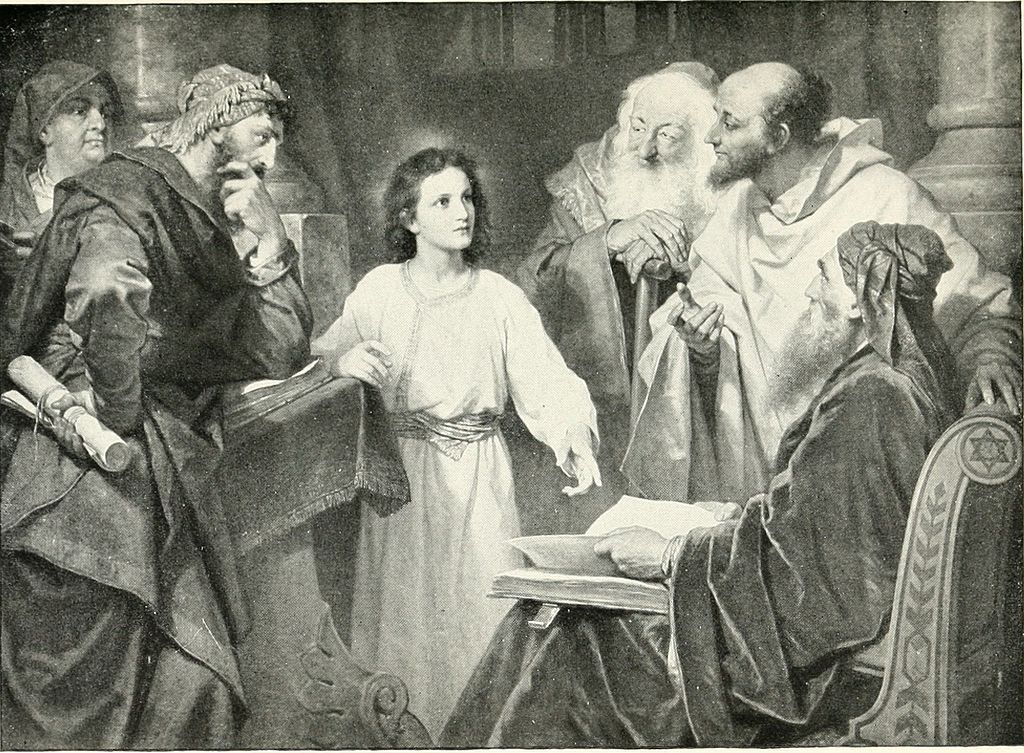|
To work for the proper implementation of canon law is to play an extraordinarily constructive role in continuing the redemptive mission of Christ. Pope John Paul II |
|
6 may 2018 |
Research links
|
Related
Basic Introductions to Canon Law, here.
Canon Law Faculties & Institutes {Rhode}, here. |
|
Overview
|
Suggestions on Preparing for Canon Law School
Today canon law studies are conducted and degrees are awarded, for all practical purposes, exclusively at the graduate level. People considering going into canon law wonder about what might be good undergraduate or even graduate level preparations for canonical studies. Some thoughts occur to me.
|
|
An Exchange
I was recently accepted into law school and would like to go on to canon law studies after that.
Great.
Should I study theology while I'm in law school so as to have a jump on my canonical studies?
No. Law school is a full time job. Focus on it for three years.
Are you sure?
Yes. And take the bar exam even if you never plan on practicing. |
Undergraduate Studies
No undergraduate major would preclude one from later studying canon law (I know good canonists with undergraduate degrees in, for example, Chemistry, Music, and Political Science) but, given a choice, some majors would seem to be a more effective or efficient preparation for graduate work in canon law than would others. In my opinion, good undergraduate areas of concentration include:
Philosophy • Liberal and/or Catholic Studies • Church History • Classics • Theology
The Philosophy program should be a systematic one with several courses in Ancient and Medieval philosophy (especially Thomism) along with demanding writing requirements and legal philosophy offerings. Not all philosophy programs are created equal. Check them out carefully.
Many Liberal Studies programs (in either the classical or Christian model) are excellent formations for life, and law is very intimately linked with life. An emerging major to watch is Catholic Studies. There are many such programs running now, but the flagship of them all is at the University of St. Thomas in Minnesota. My impression is that such programs could well prepare those considering canon law. As with philosophy, program quality varies. Check them out carefully.
Church History gives one a special exposure to ecclesiastical experiences over time and can provide a perspective helpful in keeping current issues in focus. Be sure to take some Roman and legal history courses.
The academic rigor of Classics is a marvelous preparation for graduate school, and the Greek and Latin foundations one acquires therein would provide great tools for canonistics. Be sure to get some philosophy and Church history.
I list Theology after some other choices for undergraduate major for the simple reason that there is time to do theology at the graduate level, and because one’s ability to do good theology is advanced by knowing things besides theology. If you really can’t wait to get into theology, okay, but get plenty of philosophy and history along the way. Also, be very discerning in your choice of schools/departments. A lot of material offered under the broad heading of “theology” is of little consequence for Catholic thought or for canon law.
No matter what your undergraduate major, get a solid foundation in Latin and acquire reading ability in at least one other modern language. You will have to continue working on and in Latin during graduate studies in canon law, and you will likely want to acquire a second scholarly language as well. It’s very hard on folks who put these tasks off till graduate school. If you really cannot acquire reading ability in Latin and in at least one other modern language besides your own (and don’t conclude too quickly that you cannot), then do not go into canon law.
Graduate Studies before Canon Law
By far the most important area of graduate studies for aspiring canonists is Theology. Canon law faculties require applicants either to (1) present evidence of graduate theological studies at least equivalent to that required for ordination (the M. Div., though licentiates, masters, or doctorates are preferred), or (2) undertake a hefty “First Cycle” program of up to four semesters in graduate level theology.
If, however, Deo gratias, one has the chance to pursue other graduate degrees before entering canon law, continuation in any of the fields recommended above could be useful. One might also consider a law degree (either Anglo-American or continental) because, despite the great differences between the two systems, such an education affords a canonist valuable perspectives from another major legal tradition, and that’s always a good thing.
I need not add that one should continue working on Latin during any graduate studies prior to beginning canon law school, and if your other studies do not already demand additional languages, hone your earlier skills in modern languages and acquire another one for good measure. You’ll be very glad you did.
Related Reading
Congregation for Education, Decree Novo Codice "On Revising Canonical Training" 2 September 2002 Latin English Italian Spanish Portuguese
|
|
Some Follow-Up Questions |
1. I see there are only two canon law schools in North America. Is admission to canon law schools as competitive as it is for law school?
Actually there are three canon law "faculties" in North America: The Catholic University of America (Washington DC, English), St. Paul University (Ottawa, French or English), and the Pontifical University of Mexico (Mexico City, Spanish).
When we say that certain graduate schools (in America, at least) are "competitive", what we really mean is that well-qualified applicants are turned away simply because there are not enough seats in the classroom to hold all such applicants. The more "competitive" a law school is, for example, the smaller the percentage of perfectly suitable candidates are admitted. I do not think that this situation applies to canon law schools. I would describe admission to canon law school as "demanding", not "competitive". By that I mean that if one meets the objective requirements for admission, one will almost certainly be admitted to studies.
2. Do I have to commit to pursuing a doctorate in canon law from the start?
No, and most canon law students do not so commit. A doctorate is not necessary to practice canon law (a licentiate degree is) and most canon lawyers do not pursue doctoral studies. Those who do wish to go on for the doctorate, moreover, need to be specifically admitted to those studies at the proper time.
3. What modern languages are best for canon law, and does it make any difference whether I study classical or Church Latin?
The five most important modern research languages in canon law are: English, French, German, Italian, and Spanish. Other useful languages include Dutch, Polish, and Portuguese. Still other modern languages might be considered based on particular areas a student might want to study, but I can't imagine a licentiate student not being able to read well at least two of these eight major moderns (besides Latin, of course).
Canonical Latin is "Church" or "Ecclesiastical Latin". Those with a good grounding in classical Latin, however, have no difficulty in making the transition to Church Latin. |
|
Paying for canonical studies |
1. Financial Aid and Academic Scholarships in Canon Law. Apply directly to the faculty as would any other graduate student.
2. CLSA Scholarships in Canon Law
3. Direct sponsorships for Canon Law studies. I know of none currently, but these tend to be worked out on an individual basis.
|
|
Materials on this website represent the opinions of Dr. Edward Peters and are offered in accord with Canon 212 § 3. This website undergoes continual refinement and development. No warranty of completeness or correctness is made. Dr. Peters' views are not necessarily shared by others in the field nor are they intended as canonical or civil advice.
CanonLaw.info Homepage & Site Directory / Help support CanonLaw.info / Original Materials © Edward N. Peters |




 No graduate program
precludes one from later studying canon law but, as a practical
matter, opportunities for graduate work are narrower than are those
for undergraduate, and besides, considerable graduate work is
demanded for admission to
canon law programs today.
No graduate program
precludes one from later studying canon law but, as a practical
matter, opportunities for graduate work are narrower than are those
for undergraduate, and besides, considerable graduate work is
demanded for admission to
canon law programs today.